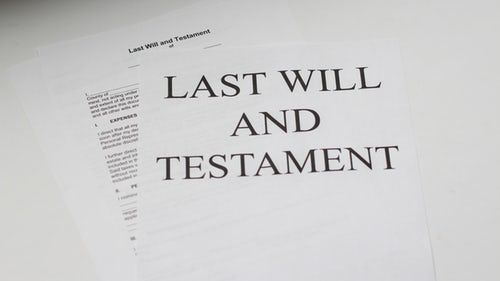
Buying or Selling Property
Whether you are entering into a residential or commercial agreement to purchase a family home or an investment, our objective is for you to have a stress free experience under the guidance from the team at Hassall, Cameron, O'Connor & Lee.
Our aim is to complete the transfer in a timely, professional and friendly manner and to keep you informed every step of the way, ensuring that your interests are protected at all times. If you are in the market to buy or sell you need only give us a call to begin the legal process and don’t forget, it pays to have your lawyer peruse any agreement before you sign.
We can assist with:
Advice of Ownership Structure
Buying a home
First time home buyers, Kiwisaver and Housing New Zealand First Home Subsidy
Selling a home
Property Financing and Refinancing
Subdivision and Property Development
Occupation Rights

Business / Commercial Law
We are experienced in this field and can advise upon the right entity, the traps and the right clauses to include in any agreement.
Our advice can help with:
Buying and selling a business
Financing / Refinancing
Buying and selling farms, lifestyle blocks, orchards
Buying and selling livestock
Company Formation
Commercial Leases
Commercial Contracts
Shareholder Agreements
Partnerships
Debt Recovery

Wills
The simplest way to ensure that your funds, property and personal effects will be distributed after your death, according to your wishes is to prepare a Will. A Will is a legal document designating the transfer of your property and assets after you die. Usually, Wills can be written by any person over the age of 18. Making sure that you have taken steps to ensure that your wishes are known gives you peace of mind. A Will lets you name your executor(s), the person(s) who will oversee the settling of your affairs after you die.
If you have not made a Will the law says who is entitled to apply for permission to administer your estate. This may not be the person you would have wanted. The law also provides who is to receive your property. Again this may not be who you would have chosen. Most people do not realize that planning and preparing a Will can be quite simple. Speak to us for advice as to what suits your needs.
We can advise on:
Individual Wills
Mirrored Wills
Life Interest Wills
Living Wills
Memorandum of Wishes

Trusts
A trust can be set up by a person who desires it but they must be over 18 years of age. That person is named the Settlor. The person(s) who control and administer the trusts are known as the trustees. A trust may have any number of trustees. A trust cannot exist for more than 125 years but can be wound up earlier. Real estate or other assets can be added to the trust as the need arises. All property is held by the trustee in trust for persons who are known as the beneficiaries. These are person(s) or entities who will derive benefit from the trust and for whom the trust is set up.
We act for a large number of trusts and can advise on whether a trust is suitable for your needs and guide you through the process.
We can help with:
Formation of your trust
Advice
Changing Trustees
Administration
Transferring Assets
Variations of Trust Deeds
Winding Up
Estate Planning

Elder Law / Enduring Powers of Attorney
Enduring Powers of Attorney (EPA) are for the purpose of ensuring that someone appointed by you is able to deal with your affairs if you lose your mental capacity. There are two forms of EPA, one for dealing with property and the other for your care and welfare. For dealing with property you can appoint one or more attorneys to act either jointly or individually but for making decisions as to your care and welfare you can appoint only one attorney. In each case you can appoint a successor attorney to take over if your first appointment ceases.
EPA for both Care and Welfare and Property are becoming requirements of medical and care facilities. Life can be uncertain at times and anyone at any age can have an accident or be hospitalised with a serious illness. Someone needs to ensure the mortgage and bills are paid and that you are being properly cared for. You need to think carefully about naming the right person as you are giving them a lot of responsibility including the ability to make decisions when you are no longer able to do so. Your attorney needs to be someone you can trust to do the right thing and it would pay to consider family dynamics. Your Lawyer can best advise you as to your specific requirements.
If you become incapacitated and have not signed an EPA, then the alternative is to get an order from the Family Court. The judge will be reliant on the information provided to the court and will not know who among your family and friend is most able to be trusted. EPA’s will cease upon your death.
Speak to us for:
Practical advice
Retirement Villages & Occupation Rights Agreements
The Right Attorney
Property Issues
Personal Care and Welfare
Restrictions
Joint and Separate Authority
Holding Deeds and documents

Estates
The administration of an estate is an important responsibility and must be carried out with great care. Before you can start dividing up someone’s estate, except in the case of small estates, you need to get permission from a court by way of obtaining a grant of Probate or letters of administration. When granted this gives the Personal Representative (the executor, administrator) the authority to deal with the deceased’s estate.
So what is Probate? Probate is a legal process whereby a will is recognised by the courts as being authentic and for the executors to be given the authority by the High Court to deal with the deceased’s assets (and liabilities) and to enable distribution of the estate in accordance with the Will.
There is a heavy responsibility on people acting as executors, administrators and trustees. If the personal representatives were appointed in the Will, they are known as executors. Otherwise, as in the case where there is no Will, they will be known as administrators.
Where administrators are involved, they will obtain their authority to act as personal representatives from a High Court grant of letters of administration. Applications to the High Court for grant of probate or letters of administration require the preparation of formal documents.
Duties of personal representatives include:
arranging the funeral (if not arranged)
obtaining grant of probate or letters of administration
obtaining details of all assets and liabilities, to protect and preserve the assets and as appropriate selling and disposing of property
paying debts, testamentary expenses and funeral expenses out of the estate
Keeping accounts and records and distributing the assets of the estate to the terms of the Will or rules of intestacy
As estate lawyers we will guide you through the process as we assist you in all these matters. We prepare the High Court documentation required for the granting of probate or letters of administration, explaining the process and keeping you informed throughout. Smaller estates may not require probate or letters of administration.
We can assist you with:
Advice and guidance upon death to final completion
Probate
Letter of Administration
Distribution
Family Arrangements
Estate Administration

Relationship Property
Contracting Out Agreements and Separation Agreements.
Advice as to:
Who does the Property (Relationship) Act apply to?
What constitutes a de facto relationship?
What is separate property?
When does separate property become relationship property?
How will property be divided when a relationship ends?
What about debts?